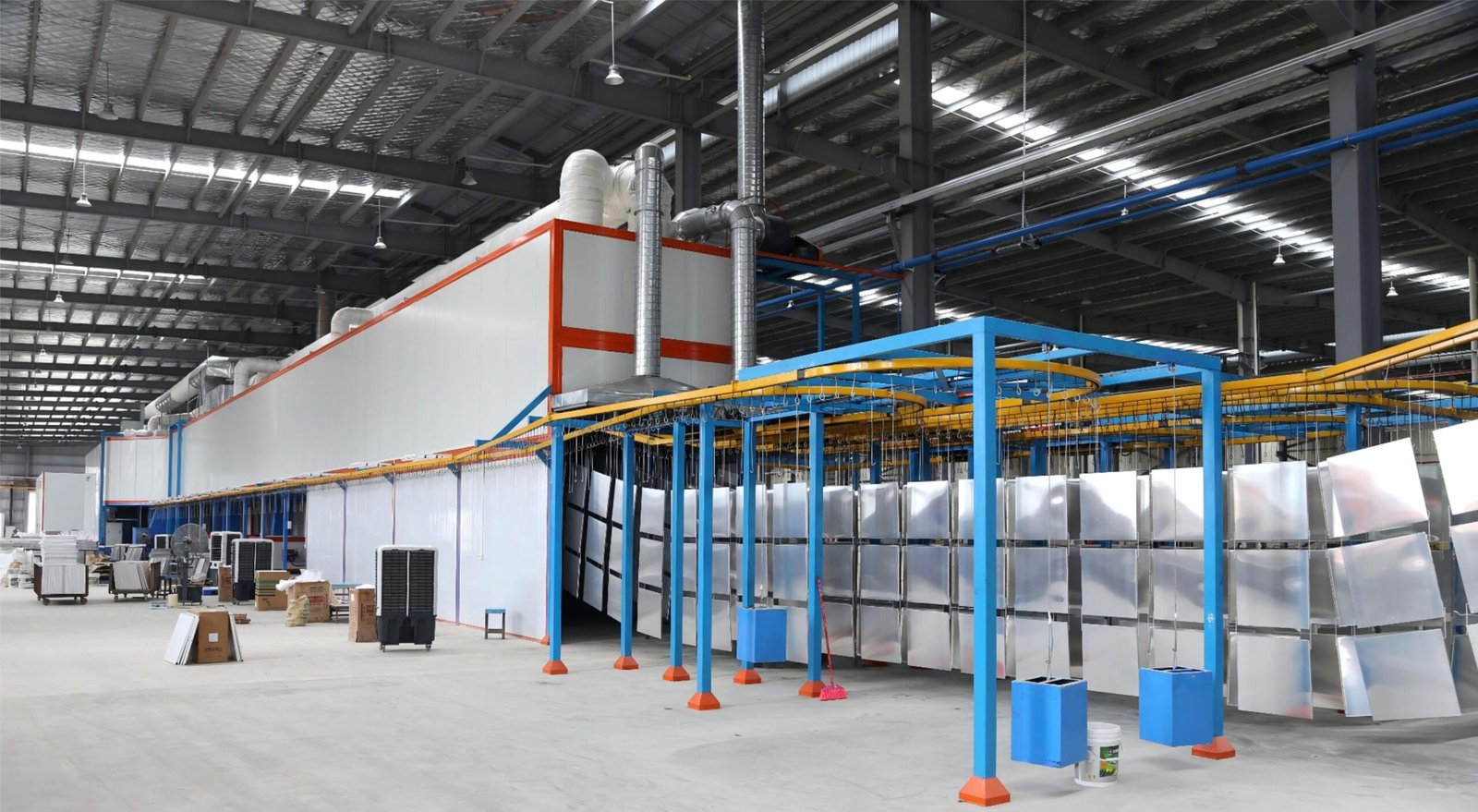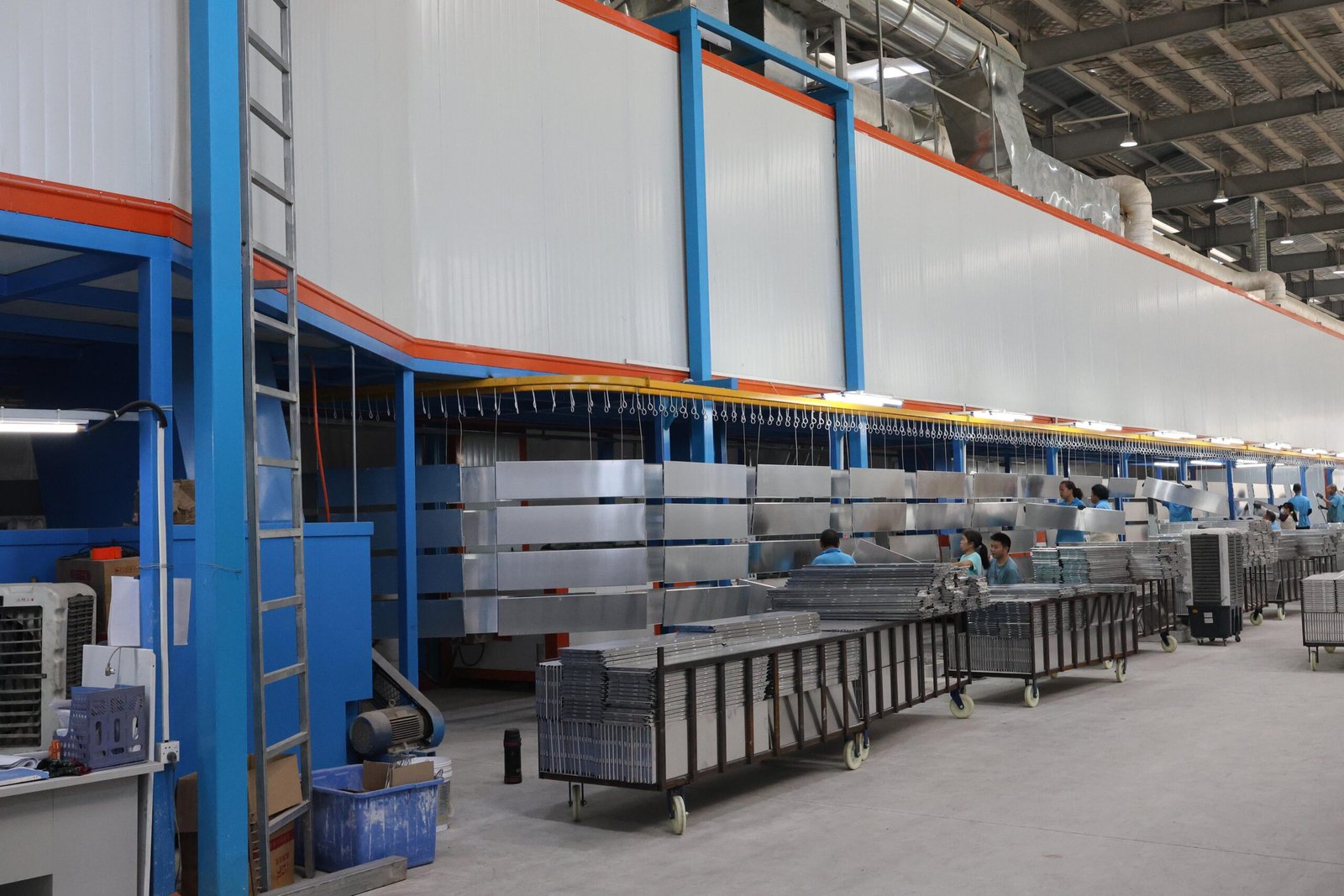What Is the Typical Maintenance Cycle for Spray Coating Equipment?

If your spray coating line breaks down, you lose time, product, and money.
So how do you keep it running smoothly, shift after shift?
A typical spray coating equipment maintenance cycle includes daily checks, weekly cleaning, monthly part replacements, quarterly system tests, and yearly overhauls. These routines ensure uptime, safety, and coating quality.
Let’s walk through the full cycle—what to do, when to do it, and why it matters.
What is spray coating equipment and why does maintenance matter?

Spray systems are used in industries like auto parts, appliances, and aerospace.
They apply paint or protective layers with precision—but only when well-maintained.
Spray coating equipment includes guns, nozzles, hoses, pumps, tanks, and booths. Maintenance prevents clogs, wear, leaks, and poor spray quality.
Without proper care, your system may:
- Waste coating material
- Produce uneven finishes
- Overheat or leak
- Fail safety or compliance checks
Routine maintenance protects both your equipment and your final product.
What should be done daily?

Every shift counts.
Start and end each day with a quick but focused check.
Daily spray equipment maintenance prevents buildup, detects early wear, and ensures safe startup.
Daily tasks include:
| Task | Purpose |
|---|---|
| Check nozzles for clogs | Avoid uneven spraying |
| Inspect hoses for damage | Prevent leaks or pressure drops |
| Tighten all connections | Stop drips and safety risks |
| Wipe down equipment surfaces | Remove overspray and dust |
Even a 5-minute daily check can prevent hours of lost production.
What should be done weekly?
A weekly clean-up keeps things flowing—and catches deeper issues.
Weekly spray coating maintenance focuses on cleaning and lubrication. It targets parts that don’t need daily attention but degrade fast under use.
Weekly tasks include:
- Deep clean nozzles and filters
- Refill coating fluids or thinner tanks
- Lubricate spray gun triggers and pump bearings
- Check ventilation or exhaust fans
If operators report pressure drops or uneven patterns, weekly checks often fix the issue.
What should be checked monthly?
Some issues develop slowly.
Monthly maintenance catches them before they cause downtime.
Monthly spray system care includes calibration, wear inspection, and electrical safety.
Monthly tasks include:
| Task | Why it matters |
|---|---|
| Replace worn seals or gaskets | Prevent leaks and air loss |
| Calibrate gun and pressure systems | Ensure consistent coating thickness |
| Inspect control boxes and wiring | Prevent short circuits or failures |
| Test for leaks under pressure | Avoid performance loss and hazards |
Use a checklist or log to track what’s been done and flag parts that may need early replacement.
What happens during quarterly maintenance?
Every few months, zoom out.
You’re looking for system-level performance—not just parts.
Quarterly spray coating equipment maintenance includes booth airflow checks, system performance tests, and deeper cleaning of hard-to-reach areas.
Quarterly procedures include:
- Inspect booth filters and replace if clogged
- Check airflow velocity and balance
- Clean and inspect exhaust ducts
- Run a full system simulation test
- Review material waste rates vs. target
This keeps environmental and operator safety in check—especially where flammable or toxic coatings are used.
What is involved in annual overhaul maintenance?
Once a year, it’s time for a complete reset.
This is about long-term reliability.
Annual maintenance includes teardown, part replacement, and software updates.
Annual tasks include:
| Component | What to inspect or replace |
|---|---|
| Pumps and motors | Check for vibration, overheat signs |
| PLC or control systems | Update firmware and settings |
| Spray gun internals | Replace worn triggers and valves |
| Hoses and fittings | Replace if cracked, stiff, or weak |
| Safety sensors and alarms | Test all emergency shutoffs |
This is the best time to train new staff, refresh safety protocols, and document all repairs.
What are the common issues—and how do we solve them?
Even with regular care, spray systems have weak points.
Understanding them saves time.
Common spray coating equipment problems include clogs, uneven spray, and pressure loss.
| Problem | Likely Cause | Solution |
|---|---|---|
| Spotty spray pattern | Clogged or misaligned nozzle | Soak and clean or realign |
| Sudden pressure drop | Leaky hose or blocked filter | Inspect and replace parts |
| Irregular atomization | Poor air regulator settings | Recalibrate regulator and air lines |
| Spray delay on trigger | Worn trigger or valve spring | Lubricate or replace trigger assembly |
Regular logs help spot recurring problems and choose longer-lasting parts.
Conclusion
Spray coating equipment won’t take care of itself.
But with a solid maintenance cycle—daily to yearly—you’ll boost uptime, extend service life, and protect product quality.
Clean systems spray clean finishes. Keep yours on schedule.
